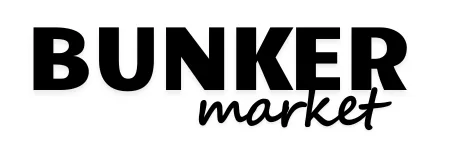The new IMO and EU emissions requirements will be the headline regulatory issues for 2023. Ian Beveridge, CEO of the Schulte Group, addresses the challenges and measures that lie ahead for shipping.
“Shipping has a major part to play in protecting our environment.”
We are certainly living in interesting times: the biggest geopolitical upheavals since the end of the cold war; enormous economic turbulence including recession in many parts of the world; the outbreak of inflation; strongly increased interest rates after decades of cheap money. And, of course, the climate change challenge. I would like to dedicate this editorial to the latter, since our industry needs to contend with two new emission reduction initiatives.
The first is the IMO’s Carbon Intensity Indicator (CII), which became effective on 1 January this year. This index compliments the IMO’s EEXI (Energy Efficiency Existing Ship Index), which is a measure related to the technical design of an existing ship and is subject to approval once in the vessel’s lifetime, and the IMO’s EEDI (Energy Efficiency Design Index), which applies to new vessels and requires a minimum energy efficiency level per capacity mile for different ship type and size segments. The CII, on the other hand, measures how efficiently a ship transports goods or passengers, whereby an annual rating ranging from A to E is assigned.
Enhancing vessel efficiency monitoring
Achieving a good CII rating requires optimising how the vessel is operated, which involves close interaction and cooperation between the shipowner, the charterer or commercial operator, the vessel’s officers, and the ship manager. Since early last year, BSM has started preparing for CII by setting up a Fleet Performance Centre with 25 expert staff, enhancing vessel efficiency monitoring tools with our proprietary software, installing sensors on a large number of vessels for near real-time monitoring, and providing training to our officers. We have also met with the responsible managers of several major charterers to discuss how we can work together to achieve the CII goals, with open communication lines and full transparency on vessel operations.
How to operate each vessel as efficiently as possible?
However, the required interaction and cooperation between the parties also needs to be contractually regulated, and here the industry has hit a roadblock. Despite the great efforts of organisations such as BIMCO, it has not been possible to develop CII clauses for charter parties that are widely acceptable to charterers and shipowners. This is compounded by the fact many industry participants are questioning the coherence and legitimacy of CII, arguing that optimising vessel operations in line with the underlying CII mechanisms can lead to more emissions per ton-mile of cargo transported than would be the case otherwise. Accordingly, it is expected that the CII mechanisms will be significantly changed, by the latest in 2025, when a review is anyway scheduled. In the meantime, the penalties for non-compliance are also unclear, leading to many charterers and owners adopting a ‘wait and see’ attitude. Despite this, at BSM we would like to work with our shipowner customers and their charterers to see how we can operate each vessel as efficiently as possible, to save fuel and reduce emissions.
Implementation of the European Union Emissions Trading System
The second new initiative is the implementation of the European Union Emissions Trading System (EU ETS) Directive for shipping, which is now being legislated and will come into force on 1 January 2024 with a phased application. This is part of the Fit for 55 package of measures being adopted by the EU to encourage the reduction of emissions. The other noteworthy elements for shipping are: the FuelEU Maritime Regulation, the Alternative Fuels Infrastructure Regulation and the Energy Taxation Directive.
Collectively, these will cause significant challenges and costs to shipping, also with major consequences for ship managers. Sebastian von Hardenberg outlines how BSM is preparing for the EU ETS in this ‘Highlights’ edition.
BSM is committed to reducing emissions as set out in our Sustainability Report. Shipping has a major part to play in protecting our environment, and we fully recognise our responsibilities and are investing resources accordingly. Since seaborne transportation is by far the most environmentally friendly way of transporting goods, I hope that the profile of our industry will be enhanced by the emission reduction initiatives from the IMO and the EU, and our diligent compliance.
An Article by Ian Beveridge, CEO of the Schulte Group

